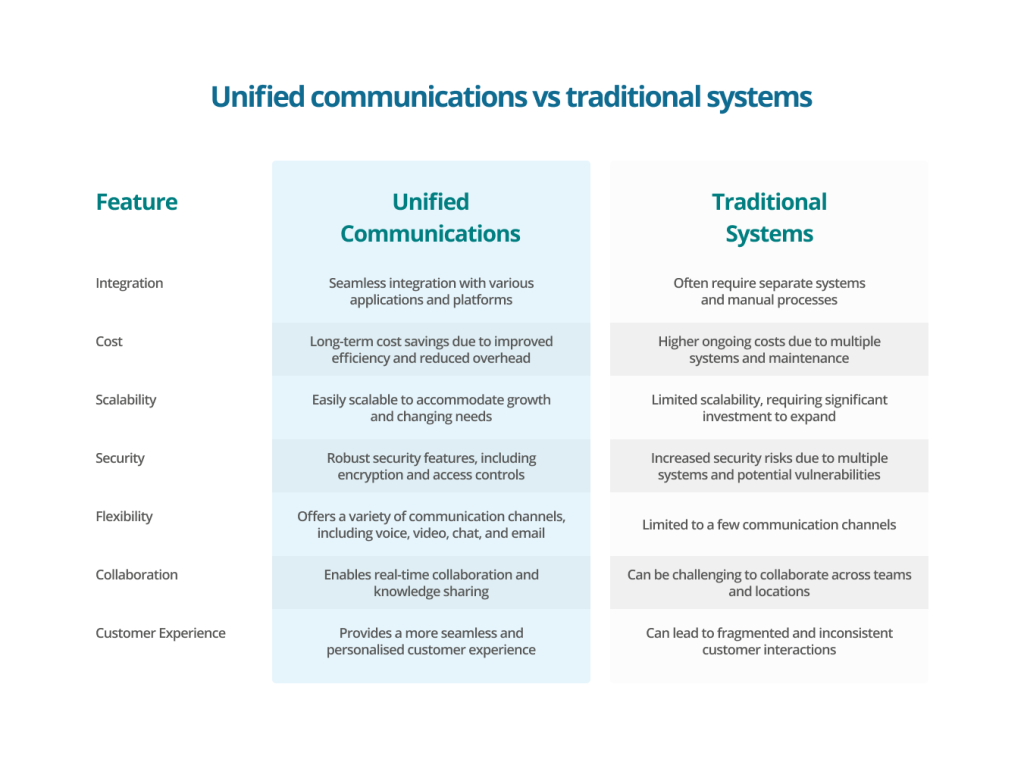Navigating Travel Industry Risks with Intelligent Communications
We’re going to explore some real-life unforeseen circumstances that the travel industry has had to navigate and how intelligent communications solut...
Trust is everything and charities must utilise modern and reliable communications tools if they are to be seen as competent and trustworthy in the minds of patrons and contributors.
This is especially true for well-established charities aiming to maintain a professional image, however it’s just as crucial for lesser-known organisations, who are keen to make the right first impression to donors and potential patrons.
Unreliable phone systems and clunky internal processes can get in the way of success, making it harder for charities to connect with donors and fulfil their mission.
Unified communications systems offer a solution.
As a comprehensive communications platform, unified communications encompass all the essential tools that a charity needs to thrive in the 21st century. With features like phone calls, instant messaging, email, file transfers, video calls, web conferencing, collaborative platforms, and more—all contained within a single, easy-to-use application—charities can enhance their communication and operational efficiency.
Keen to learn more about how a unified communications system can help those in the charity sector?
At Elite Group, we specialise in unified communications and have extensive experience assisting various organisations, including charities, in successfully transitioning to our solutions and transforming their telephony systems for the better. If you’re considering a new communications system for your charity, keep reading.
For charities working across various offices, high-street branches or other locations, effective company-wide communication is essential – this isn’t possible with analogue phone systems.
In the digital age, analogue phone systems offer very few advantages when compared to digital-based alternatives. Presenting a clear reason why all businesses and charities alike should make the switch to digital options, like unified communications.
Not only are they more reliable, but they will remain connected after the PSTN (Public Switched Telephone Network) switch-off in 2027. British Telecom will be deactivating the traditional phone lines that have powered telecommunications in the UK for decades, meaning those still reliant on an analogue phone system must move to an alternative, or be forced to lose communications entirely.
As unified communications systems are cloud-based and run using VoIP (Voice Over Internet Protocol) technology, they will remain fully connected when the old lines go down.
Beyond the PSTN switch-off, the streamlined communication offered by unified communications makes it a compelling addition for any growing charity. This solution provides a real-time view of messaging and the ability to share files, calendar updates, and other important information across all staff and locations.
With unified communications, charity workers can connect with colleagues at the touch of a button, significantly increasing efficiency and reducing the time spent searching for contact details. This streamlined approach minimises reliance on other expensive subscription services, ultimately lowering operational costs and allowing organisations to allocate resources more effectively. By consolidating multiple communication tools into one platform, charities can enhance productivity and foster collaboration without incurring additional expenses.

According to a report by the University of Maryland, there is a cyberattack every 39 seconds. The biggest targets are enterprises known for handling cash, emphasising the need for charities to have robust and tested cybersecurity measures.
Unified communications systems present numerous advantages for charities from a cybersecurity standpoint and the protection of donor data.
For one, they feature their own built-in cybersecurity tools, such as encryption, which scrambles data rendering it useless to anyone who doesn’t have the access key. This means that even if a hacker was able to breach the network, any sensitive information would be completely illegible.
Along with this, multi-factor authentication helps to ensure that only authorised users are ever able to access the platform.
By demanding approval of identity on a separate device or account, unified communications solutions are only accessible to approved charity employees. Administrators may also place identity-based limits on certain tools and cloud spaces within the system, reserving sensitive data for those with a specific need to view it.
Consolidating methods of communication into a single application is also a security effort in itself. When charities spread their comms over numerous separate applications the likelihood of sensitive information being accidentally passed onto the wrong party, or that an employee may fall victim to phishing, increases.
Phishing is the process in which criminals pretend to be someone of influence within a company, such as the CEO or a manager, and instruct an employee to offer up private login information or to click a harmful link. This usually happens via email, but can also appear through suspect accounts via instant messaging applications, WhatsApp, Skype or any number of other platforms.
However, by consolidating all communications into one platform—eliminating the need to constantly toggle between applications and providing access to verification tools—employees are more likely to recognise and report phishing attempts rather than fall victim to them.
Compliance is also an essential practice in the modern digital world, with all businesses having a legal responsibility to manage financial data with the utmost care. Otherwise, they may face hefty fines and closure.
Fortunately for charities struggling with data management, unified communications solutions include compliance tools that ensure the data housed within the platform is handled according to the strictest guidelines at all times.
Many charities rely solely on donations to sustain their operations, which can create significant financial pressure on those in charge. This reinforces the need to reduce monthly expenditures as much as possible. Communications is one area where many organisations, including charities, can save money through solutions like unified communications.
According to Elite Group research, 7% of businesses are still using 6 or more separate forms of communication in their day-to-day. These often carry monthly subscription costs. Switching to a unified communications system can avoid this, reducing monthly expenditure for charities by offering all the communications tools required through a single provider.
Depending on the nature of a charity’s work, employees may need to work remotely, whether from home or out in the field. This can make it challenging to stay connected with office-based colleagues and collaborate effectively, especially when communication is required with multiple people or departments at once.
Along with relying on call transfers made to their personal phones (or landlines in some cases) remote-based charity workers may not have access to the same files, information and tools as their office-based colleagues.
This significantly limits their ability to perform their roles effectively. However, by implementing the right unified communication solution, charity employees can remain connected and access crucial resources, no matter where they are located.
As long as an employee has access to a digital device (mobile phone, laptop or tablet) with the unified communications app installed, and a stable internet connection (this can include mobile data) they will still be able to access messages, converse and work to the highest standard.

If a unified communications system sounds like the upgrade your charity needs to maintain operations and continue to thrive, speak to our experts.
As a leading Cloud Communications provider with decades of combined experience assisting organisations of all sizes, we are your ideal partner for embracing cloud communications and harnessing the numerous advantages they offer.
When partnering with Elite Group, you’ll be assigned a dedicated account manager who will act as your first port-of-call and guide you through the process of onboarding a unified communications system.
To ensure that your internal processes align seamlessly with your new tools, we will assign you a dedicated account manager, who will collaborate with you to address any issues that arise, enabling you to fully capitalise on the benefits of unified communications.
To find out more about our unified communications solutions at Elite Group, or any of our other products and services, speak to an Elite expert now.